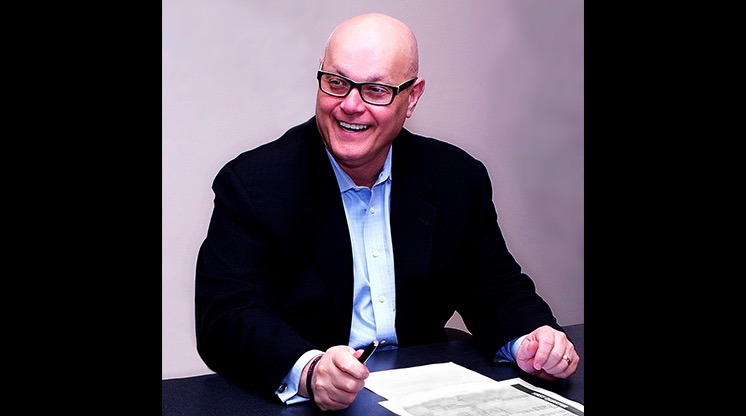The Five Spot: Dan Shelley

The smarter way to stay on top of broadcasting and cable industry. Sign up below
You are now subscribed
Your newsletter sign-up was successful
With media bashing en vogue, Dan Shelley, the incoming Radio and Television Digital News Association (RTDNA) executive director, has made advocating for journalists — and preserving their ability to do their jobs — his top priority. Although Shelley, a veteran of TV, radio and digital newsrooms, doesn’t officially take over from the retiring Mike Cavender until September, he already is in full swing work mode, most notably ramping up the efforts of RTDNA’s new First Amendment Task Force (see Local TV, page 36). As he has observed, “The erosion of the trust of the media by the public and certain politicians has been significantly exacerbated during the last two years.” And toward that end, there’s a continued charter for the organization founded in 1946: “To stand up for journalists and the people the journalists represent, the public.” Shelley spoke with B&C contributing editor Diana Marszalek about the 70-year-old organization’s relevancy, how it might sway public opinion and whether the industry itself is part of the problem. An edited transcript follows.
RTDNA has weathered some hard times over the last decade, and is serving an entirely different business than it did when created, as TV was in its infancy. Yet the group keeps at it. What we do, particularly as a broadcast advocacy group, is more important than ever. We see attempts to obstruct not just the national news media but local news media outlets to an increasing degree. We have a unique role to play.
Can a group like RTDNA actually sway public opinion? There are reporters who every day are breaking stories to expose corruption … expose flaws … and those reports are having a direct cause-and-effect relationship leading to positive changes in communities. We need to help TV and radio and digital newsrooms across the country communicate that message to their audiences so people understand that I am not here with a camera and a microphone to be belligerent or interrupt. I am here to get the information I need to serve members of the public, so you understand what’s going on.
How far can the anti-media movement go? I don’t fear for the First Amendment because I cannot. It’s not just freedom of the press … it’s peaceful assembly, it’s speech … so I cannot believe that even in today’s charged political environment, that people would stand for erosion of First Amendment rights. I am concerned about the figures in government and other efforts to curtail the freedom of the press in other ways.
Politicians have long had their issues with the media, but now it’s the public, too. When you have people in power, and people with a large bully pulpit, and they exist all over the country, not just Washington … and when you have people in power calling the media the ‘enemy of the people,’ deriding stories as fake news … those people are emboldening those who don’t understand or don’t like the news media in general to act out in ways that have become increasingly vitriolic since Election Day, and most particularly since Inauguration Day. It is seeping into the DNA of American political mindset and culture.
Free press advocates believe that, as the TV industry consolidates, it could fuel the problem further by limiting on-air voices. The FCC is going to do what it’s going to do, and media companies that wish to consolidate and expand are going to. I have seen companies that have expanded have actually strengthened their news operations. Consolidations aside, the industry is here to represent the men and women who are in the local communities, and in the network newsrooms, every day and [who are] working hard to report the truth.
The smarter way to stay on top of broadcasting and cable industry. Sign up below
